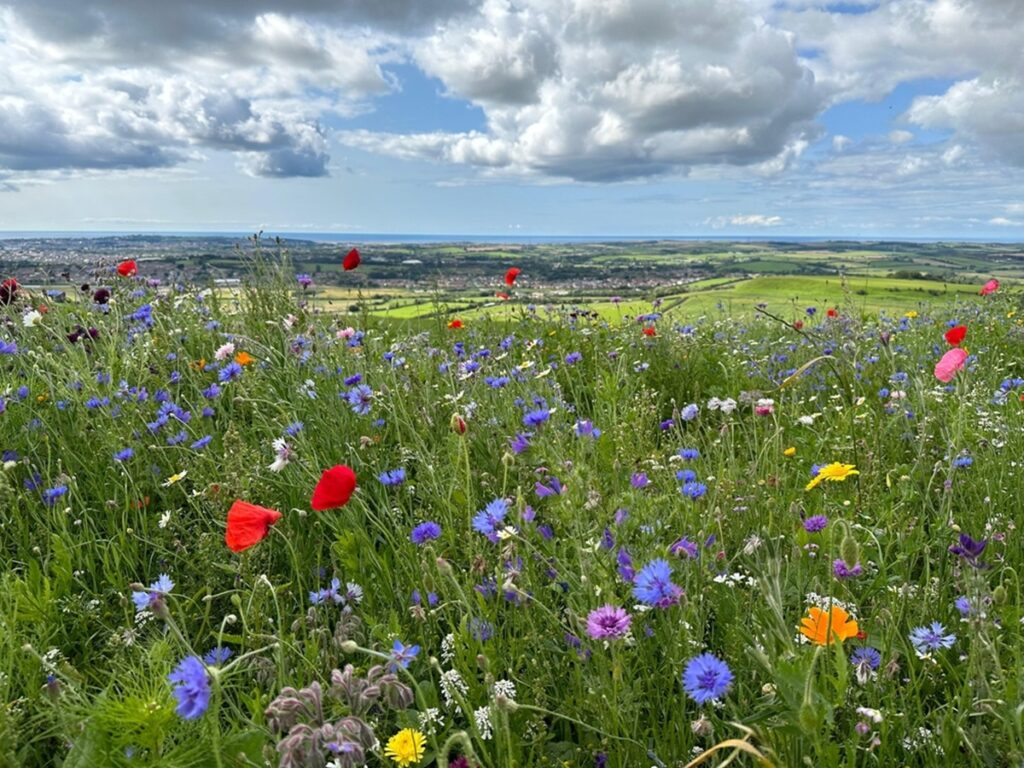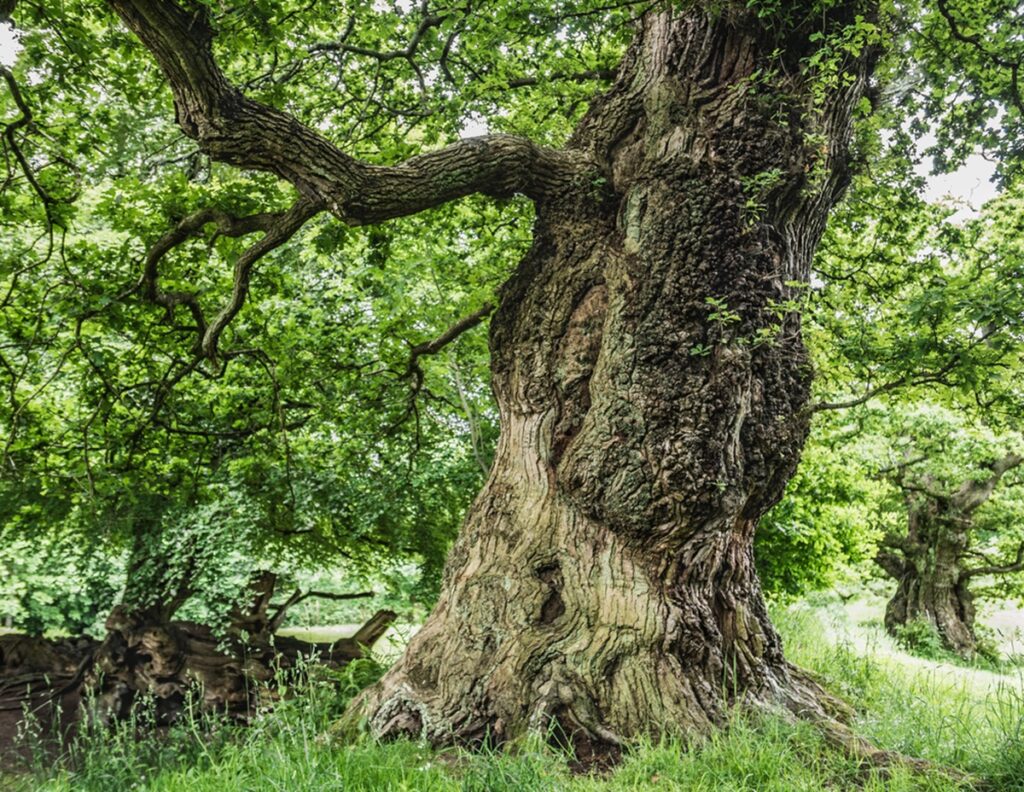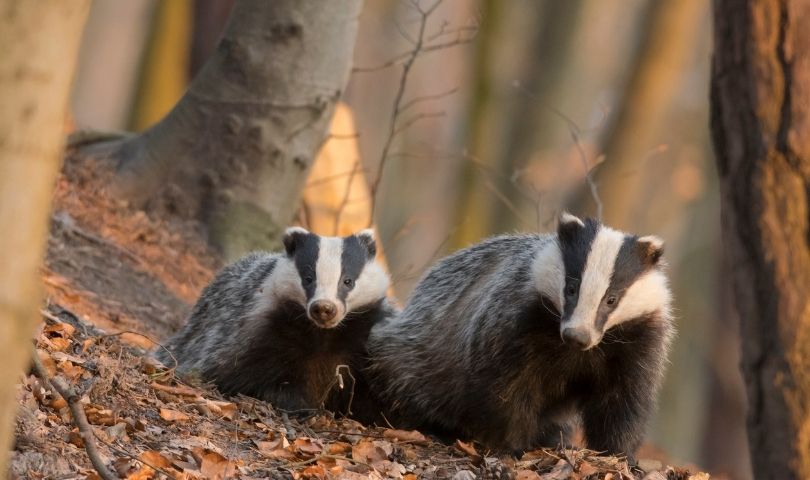Ecology Surveys and BNG Assessments in Dorset
For most planning applications in Dorset, biodiversity net gain is now a mandatory requirement alongside other planning policies.
Biodiversity net gain (BNG) is part of the Environment Act, which was introduced into UK law after gaining royal assent in 2021. Following a two year transition period, bng has significantly changed how development projects in Dorset are approached. It means that every development must leave biodiversity in a measurably better state post-construction than it was before work began.
Biodiversity Net Gain Principles
Developers, architects, and planning consultants must work with qualified ecological consultants to calculate the biodiversity value of a development site before and after development. If the projected post-development biodiversity falls short of the mandatory 10% improvement, measures must be designed and evidenced to close the gap.
These measures can include habitat enhancements on-site, the purchase of biodiversity units off-site, or a combination of both, but all actions must be approved by the local planning authority before planning permission is granted.

BNG and the Law
Since February 2024, meeting BNG requirements has been a legal obligation. Alongside the Environment Act, biodiversity net gain is included in the National Planning Policy Framework and is supported by Natural England guidance, Dorset’s Local Nature Recovery Strategy, and regional ecological priorities.
Developers in Dorset are strongly advised to integrate BNG policy early into project design, ensuring compliance and avoiding costly delays later in the planning process.
Protecting irreplaceable habitats such as ancient woodland, heathland, and chalk downland is a central theme in BNG policy. For Dorset in particular, the need to safeguard internationally important landscapes such as the Dorset Heathlands and the Jurassic Coast means that biodiversity planning carries significant local importance.
Ecological Features in Dorset
Dorset is home to some of the UK’s most ecologically rich landscapes, blending rural agricultural land with internationally protected habitats and sites of special scientific interest. Its chalk grasslands, lowland heath, wetlands, and coastal ecosystems provide critical habitat for a wide variety of protected species including bats, dormice, sand lizards, smooth snakes, great crested newts, and numerous rare invertebrates and bird species.
The Dorset Heathlands are designated as Special Protection Areas and Special Areas of Conservation, offering habitat to nightjars, Dartford warblers, and reptiles that are rare elsewhere in the UK. Similarly, the chalk downlands and river valleys host species-rich grasslands and ancient woodlands that are biodiversity priorities in both local and national strategies.
The county’s internationally renowned coastline, the Jurassic Coast World Heritage Site, further emphasises the importance of balancing sensitive habitat management with ongoing development needs.
Ecological Planning
Any biodiversity net gain plan in Dorset must take these ecological features into account and ensure that development does not undermine existing wildlife populations or ecological networks.
Local planning authorities Dorset Council and Bournemouth, Christchurch and Poole (BCP) Council both take a proactive approach to ecological planning and sustainable development: biodiversity proposals are likely to be carefully reviewed to ensure that they provide measurable, lasting ecological improvements.

Preparing a BNG Assessment in Dorset
The first step towards achieving biodiversity net gain in the Dorset Council area is commissioning a professional BNG assessment from a qualified ecologist. This begins with a baseline biodiversity survey, in which habitats are recorded, their condition assessed, and their biodiversity value mapped using the government’s Biodiversity Metric tool. Protected species surveys may also be needed depending on the habitat types present on-site.
Once the baseline pre development figure is established, the ecologist forecasts the biodiversity value of the site following development. This projection accounts for proposed landscaping, habitat creation, and management interventions.
The two figures are entered into the biodiversity metric and if the expected biodiversity net gain total on completion of the project falls short of the required 10%, the ecologist will recommend further measures to enhance the biodiversity value, ensuring the project remains compliant and can proceed through the planning system.
On-Site and Off-Site Biodiversity Net Gain
Where possible, BNG in Dorset should be delivered on-site. This might include creating species-rich wildflower grasslands, planting native hedgerows, enhancing wetland areas, or introducing wildlife-friendly features such as green roofs, bird boxes and sustainable drainage systems.
If achieving the full net gain on-site is not feasible, developers can purchase biodiversity units off-site from registered habitat banks. In Dorset, these off-site units often focus on heathland restoration, wetland enhancement, or chalk grassland creation.
We provide advice on sourcing suitable units and the legal agreements or conservation covenants required to secure them. A monitoring plan will also need to be drawn up to ensure a bng site fulfils its legal commitments over the required 30 year period. Statutory biodiversity credits may be purchased as a last resort option, although this is only recommended when on-site and off-site solutions are not achievable.

Protected Species Surveys in Dorset
Many development sites in Dorset will require additional ecological surveys alongside BNG assessments. Protected species surveys for bats, dormice, great crested newts, badgers, reptiles, or otters are common in the county. Integrating these surveys at the outset ensures that the BNG plan aligns with both the mitigation hierarchy and statutory species protections, preventing legal or planning complications later in the process.
Our consultancy carries out all protected species and ecological surveys, providing a seamless service for planning applications of all sizes. Whether for a small residential project or a large-scale commercial development site, we deliver the evidence required to support planning consent and achieve biodiversity net gain.
The completed Biodiversity Net Gain Plan
A biodiversity net gain bng plan will provide details of how a project will achieve the statutory 10% net gain. It details proposed habitat creation, enhancement measures, monitoring protocols, and management strategies for a minimum of 30 years.
Dorset Council expects BNG plans to align with their Local Nature Recovery Strategy and with Natural England’s wider ecological priorities.
Following the mitigation hierarchy is critical: avoid harm where possible, minimise impacts, and only as a last step compensate for biodiversity losses. The BNG plan must demonstrate how this hierarchy has been applied and how biodiversity improvements will be sustained for the long term.
Expert guidance on BNG requirements for Dorset Council
Our ecological consultancy provides biodiversity net gain assessments across Dorset and throughout the UK. We guide clients through every stage, from the initial baseline survey and metric calculations to sourcing biodiversity units and producing fully compliant biodiversity net gain plans. We can also prepare a habitat management and monitoring plan to satisfy long-term requirements.
We work with large-scale developers, commercial clients, and private householders, ensuring that projects of all sizes achieve planning permission while delivering bng and meaningful ecological improvements to the natural environment. Our local knowledge of Dorset’s habitats, ecological sensitivities, and sustainable development focus means we can provide targeted, practical advice that keeps projects on track.
A Free Quote for Biodiversity Net Gain Dorset
If your planning application in Dorset requires a biodiversity net gain assessment, we can provide a free, tailored quote. From small residential extensions to major infrastructure projects, our experienced ecologists will deliver a compliant biodiversity net gain bng plan that supports smooth planning approvals.
To discuss your requirements for biodiversity net gain in Dorset, contact us on our online form or use the telephone number above. We will ask you to provide details about your site and we will send a free quote. If you decide to proceed, we will arrange a site visit at a convenient time and prepare a clear, cost-effective plan to help your development meet all planning and ecological requirements.
By fully complying with the Environment Act 2021 and delivering bng to the requirements of Dorset Council, you will increase your chance of securing planning permission and leave the natural environment in a better state than it previously was.